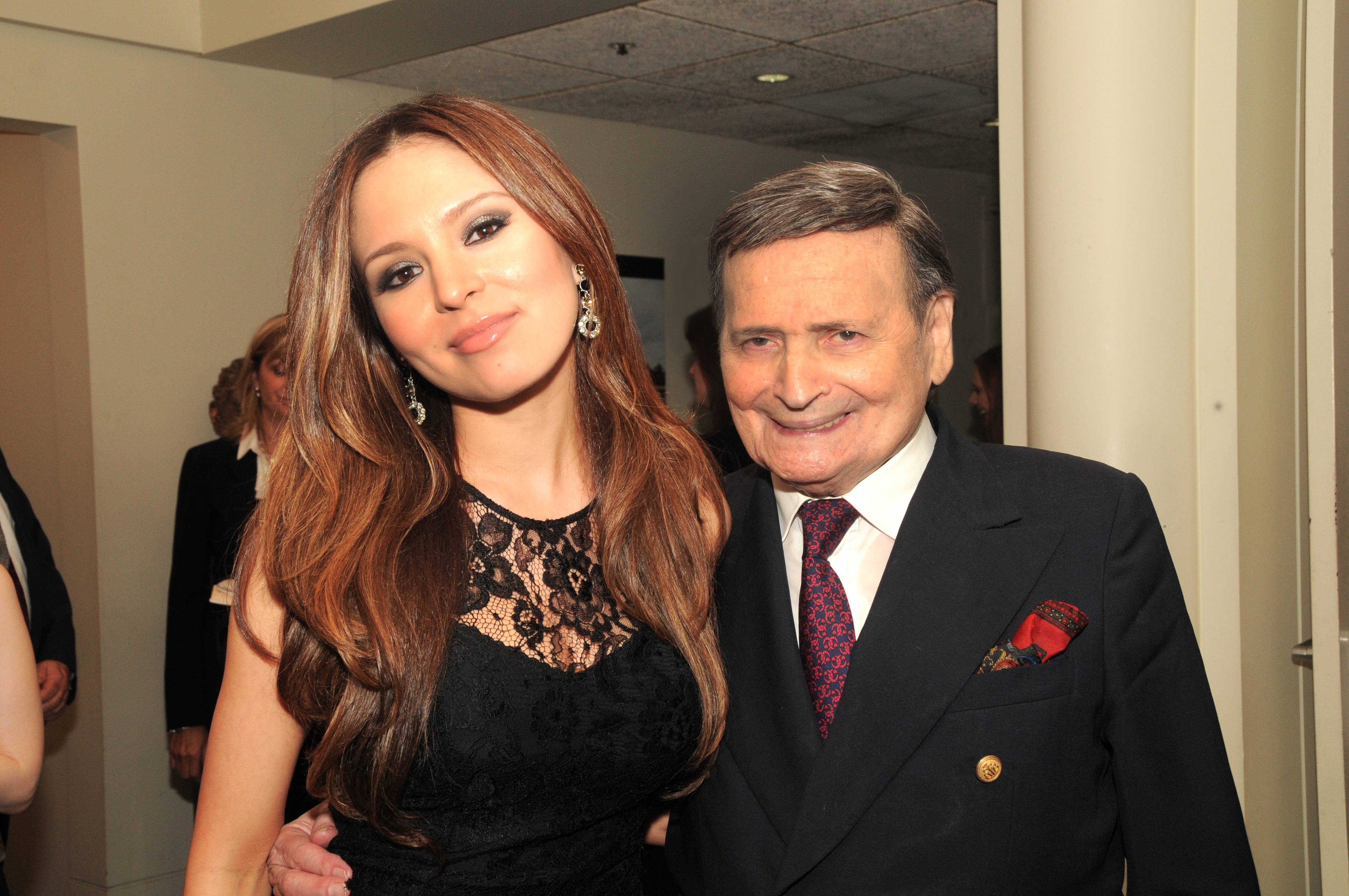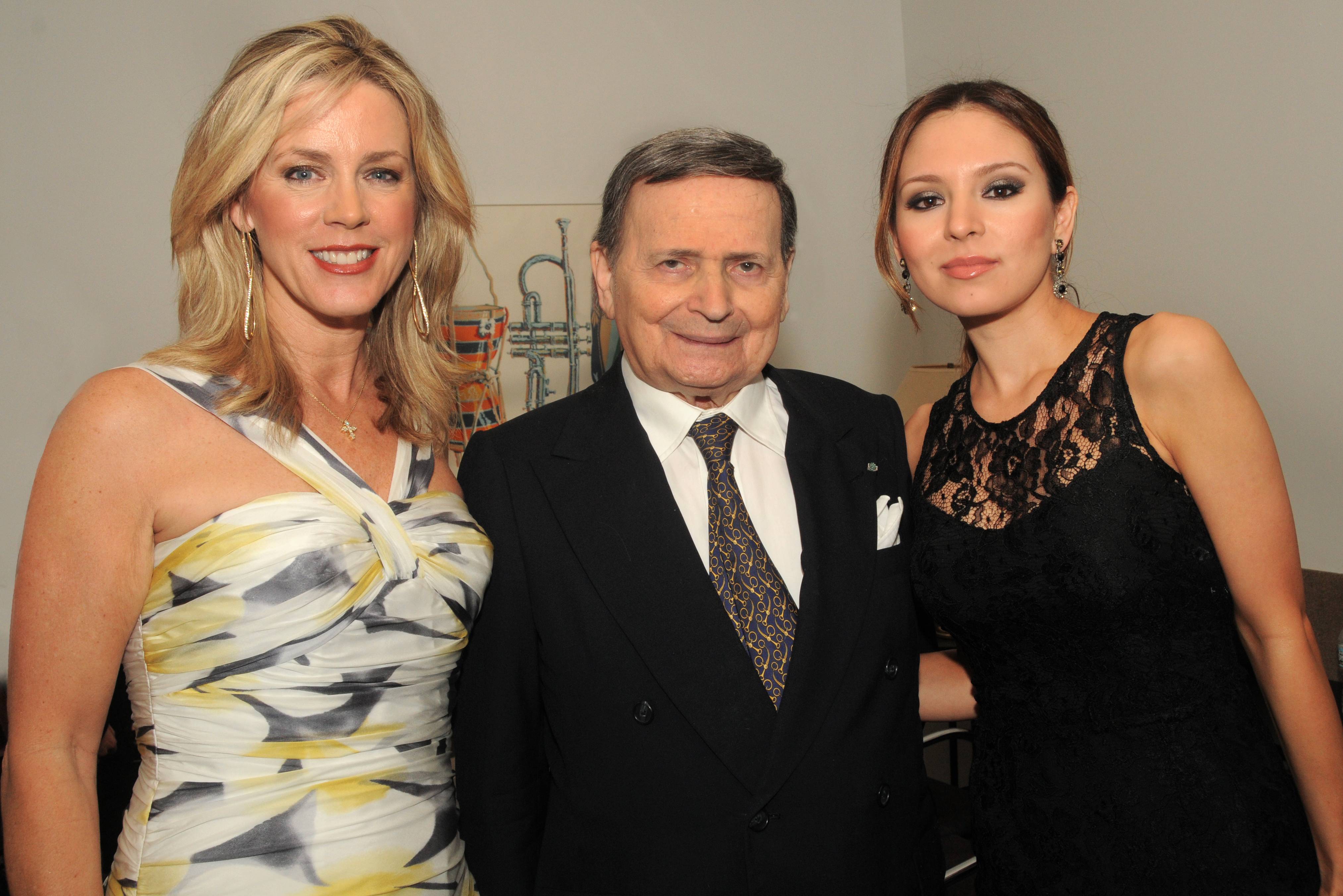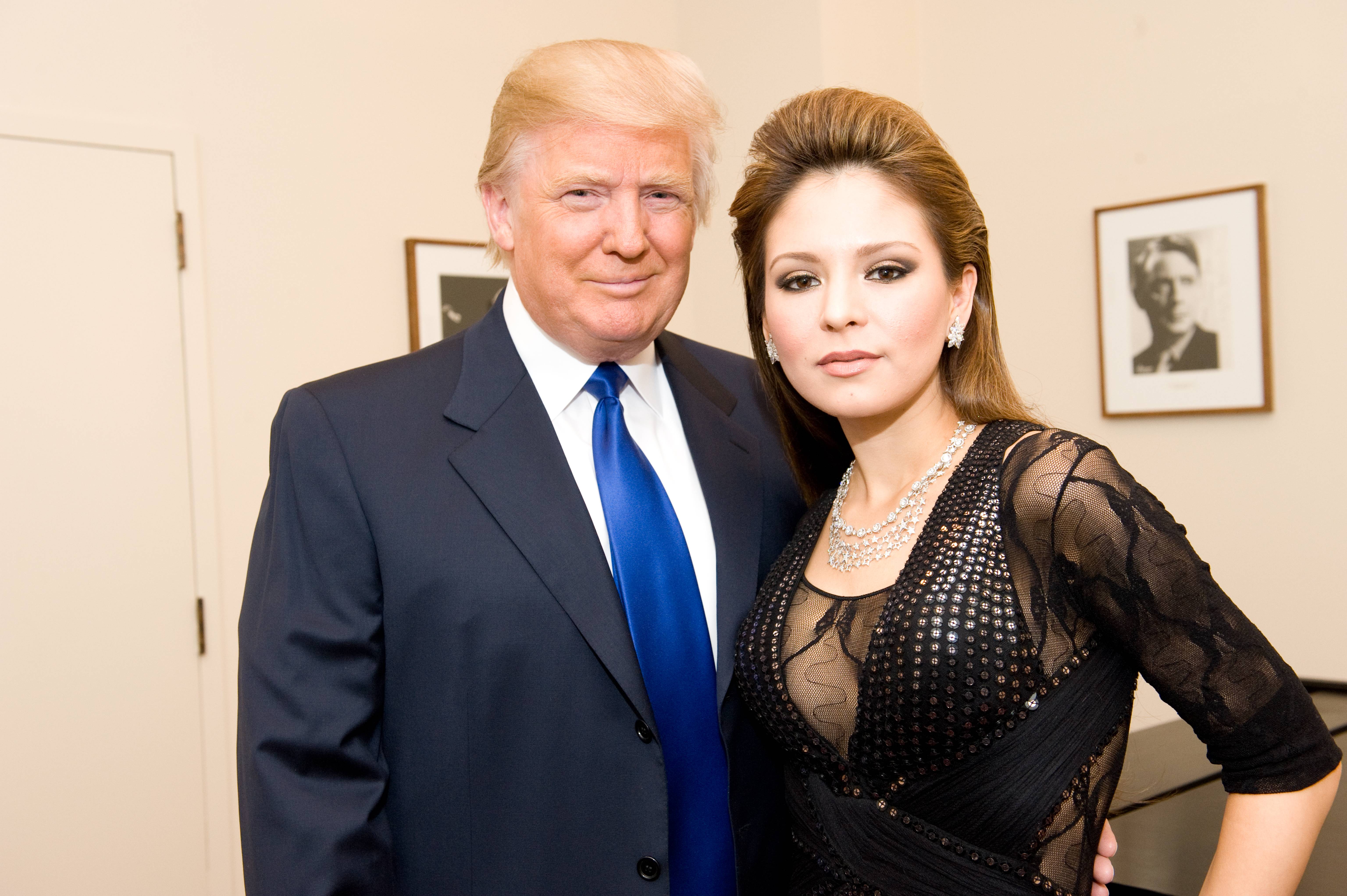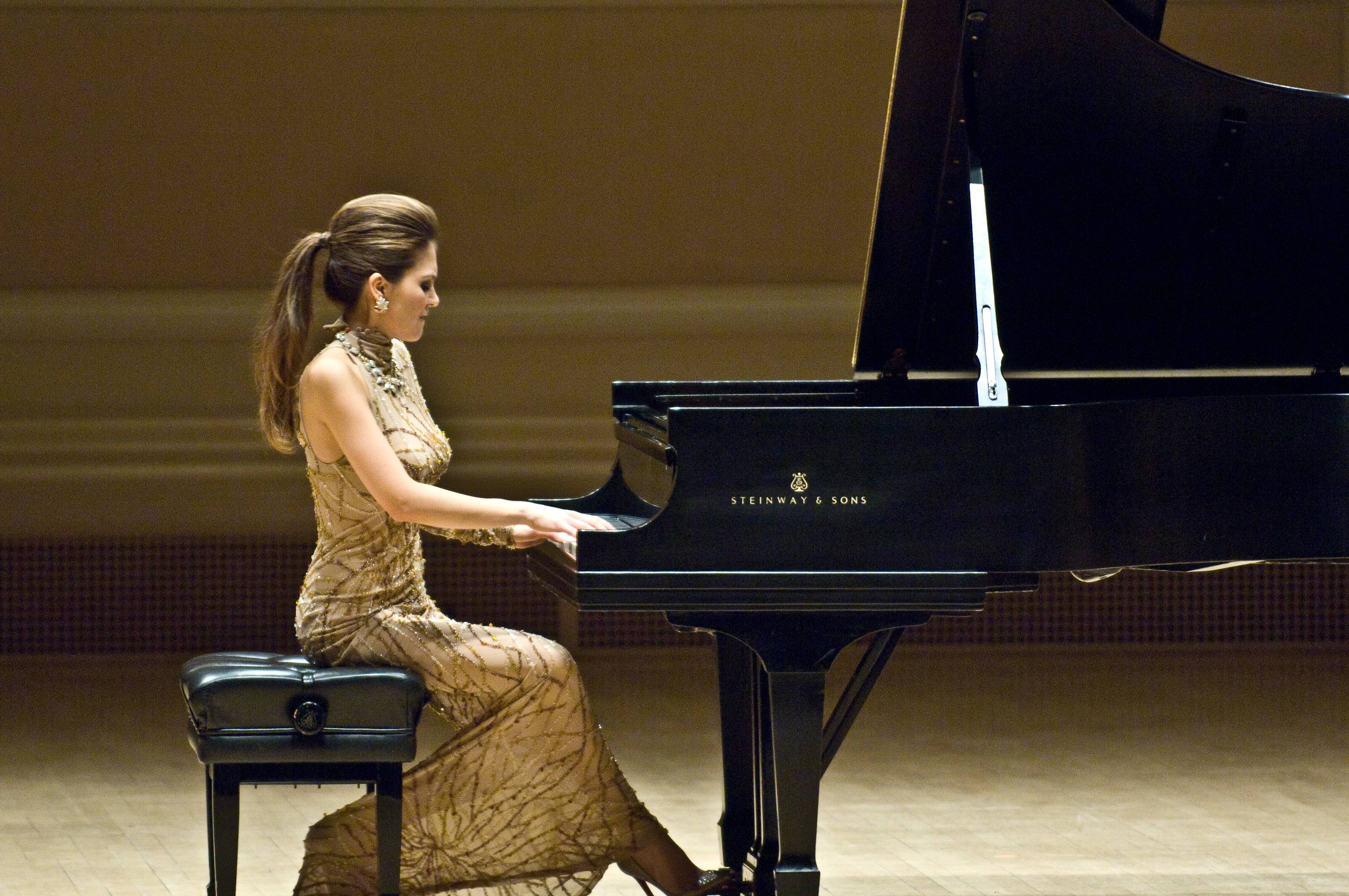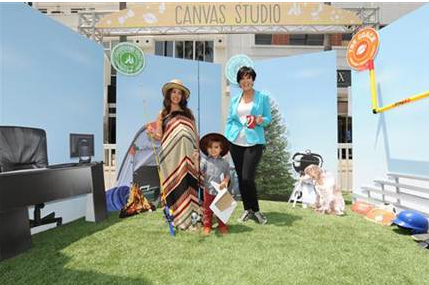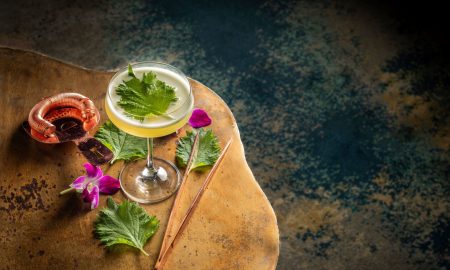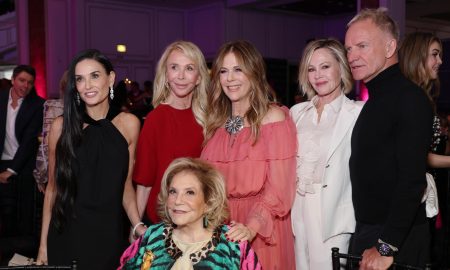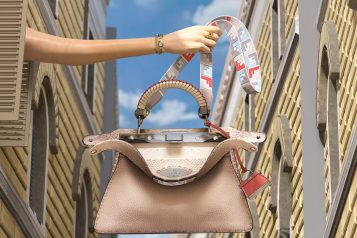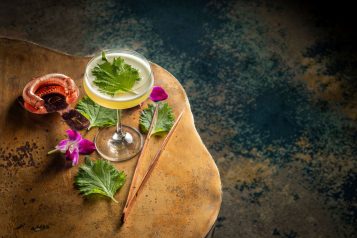
Byron Janis, among the most acclaimed pianists of the 20th century, was the toast of Lincoln Center last Thursday night. The Yamaha Music and Wellness Institute, an organization devoted to studying and supporting the mental and physical benefits of musical expression, presented a Lifetime Achievement Award to Janis, whose towering achievements on the piano were made doubly impressive when he revealed his excruciating 35-year battle with arthritis.
Janis has been invited to perform at the White House six times by four presidents, and he played at the Lincoln Center event, which was hosted by Inside Edition anchor Deborah Norville. But a big slate of younger musicians indebted to Janis also tickled the ivories at Walter Reade Theater, including Lola Astanova, a Uzbekistan-born prodigy resettled in New York who made her Carnegie Hall debut earlier this year. Haute Living went backstage to talk with Astanova about Janis, her own ascendant career and her striking performance style that has taken the sometimes-stodgy classical world by storm.
Haute Living: Describe Byron Janis’s legacy and his influence on you.
Lola Astanova: He’s one of the greatest living masters, and and the first pupil of Vladimir Horowitz. That’s a big inspiration for me. I’m actually reading his book [Chopin and Beyond: My Extraordinary Life in Music] now. He went to the Soviet Union on tour after being selected to go to Russia during the Cold War. He broke barriers there and won people over through music. He said when he walked out onstage there was hostility, and by the end everyone was clapping and screaming. It goes to show that music has this overwhelming power, especially when performed by a master like Byron.
Haute Living: You grew up and trained in the former Soviet Union before coming to the United States. What are the differences between the arts scene there and in America?
Lola Astanova: In my heart I’ve always wanted to come to the United States. The first time I came here for three weeks, I was a child really; I was seven or eight. And I saw New York City at night—the lights, Broadway, the big Coca-Cola sign [laughs]. It was a big culture shock for me obviously. And I felt good here. Musically, when I was living in the Soviet Union, I had great teachers. My main teachers were Tamara Popovich and Lev Naumov. They gave me a wonderful foundation. But I wanted to grow as an artist; I wanted to travel and see the world outside of that. I traveled throughout my youth and spent some time in Europe. But once I decided to come here I knew it was the right fit for me.
Haute Living: You originally moved to Houston, Texas when you came to America. Was New York always the destination you had in mind?
Lola Astanova: Maybe subconsciously. In Houston it was a good period in terms of getting familiar with life in America, learning the language. But artistically I’ve grown a lot in New York, as an artist and musician. It’s very important to be in the middle of the arts community, and to be exposed to a lot of different things outside of classical piano. You have to go the museums, Broadway theater, opera. And it’s all here. It’s available. That expands your mind and I think that’s reflected in the playing. As Horowitz used to say “your intellect is the guide to your emotions.” And I believe that.
Haute Living: Arts funding has taken a severe hit in America since the recession of 2008. How have you navigated the financial struggles that have been felt across the cultural spectrum?
Lola Astanova: It’s interesting you ask because I do have a message on YouTube about arts and the economy. A lot of the performance organizations have been affected, their budgets have been cut. Even some of the bigger ones have been hit. There’s this notion a lot of people believe that supporting arts is not a necessity, especially in times of recession. I think it’s the opposite–art is what helps a person shape up as an individual. And people who’ve been exposed to art are less likely to be affected by political agendas or demagogues or people who don’t have the right intentions. I think it’s very important to support artistic causes.
Haute Living: Several critics have noted you’re youthful style choices that are unorthodox within the great music halls. Do you think classical musicians can be too buttoned-up in their presentation?
Lola Astanova: I definitely think it’s time for change in the classical world. Nothing ever stands still. And this is live performing. It’s not a museum piece. It lives through the artist. And if you want to attract young people and keep them interested, presentation is an important aspect. And, if done well, it helps emphasize the music. I believe public performance should strive to be visually appealing. Most people come for music, but some come to see and be seen—it’s a social event. I think it’s time to be a little less rigid about it.
Haute Living: One reviewer referred to you as “the Lady Gaga of classical music.” Do you have any plans for a crossover into pop music down the road?
Lola Astanova: I love classical music and performing it. It’s my heart and my love. But I don’t like to limit myself. I always listen to different genres and styles of music. I’m a free thinker, and I may have a few surprises down the road.
[Haute Living]







